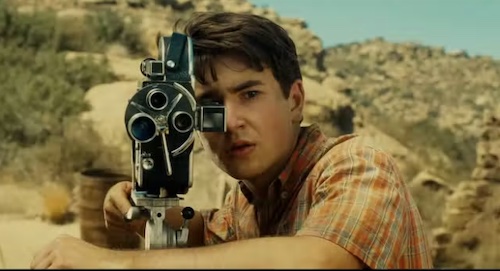
Steven Spielberg is the toast of the Golden Globes following the success of his new movie, The Fabelmans. The poignant drama walked away with the top prizes for Best Movie (Drama) and Best Director, and is expected to do well at the forthcoming Oscar nominations.
Spielberg turns the camera back on himself in this fictionalised account of his own upbringing. Young Sammy Fabelman finds himself stranded between the artistic impulses of his mother (Michelle Williams) and his more pragmatic father (Paul Dano) as he reconciles with his emergent gift for moviemaking.
The theme of family is deeply embedded in most of Spielberg's movies. The director has frequently spoken about the emotional damage committed by his parents' divorce and The Fabelmans is his most intimate, personal take on the subject.
With The Fabelmans due for release at Cineworld this January, we've rounded up the most memorable fractured families from Spielberg's extraordinary back catalogue.
1. Close Encounters of the Third Kind (1977)
Richard Dreyfus' Roy Neary has a U.F.O.-themed revelation in this classic Spielbergian tale of first contact. Dreyfus convinces and compels as the ordinary schmo who, disaffected with his home life and marriage, finds fresh impetus when he seeks out a hub of extraterrestrial activity at the Devil's Tower monument in Wyoming.
Spielberg's movie (which he has described as his most personal) may be remembered for its ultimately valedictory message and famous five-note theme from John Williams (based on 'When You Wish Upon a Star' from Pinocchio). However, it's also steadfastly realistic in observing the decline of Roy's marriage and invites a multitude of reactions to his decision to leave with the aliens at the end. Is he selfish or enlightened?
2. E.T. The Extra-Terrestrial (1982)
Here's the archetypal 'fractured family' motif in a Spielberg film. The director's Oscar-winning masterpiece is ostensibly about the bond between young boy Elliot (Henry Thomas) and a stranded alien botanist, subsequently dubbed E.T.
However, Spielberg's deeply affecting movie instead uses the alien's arrival as a catalyst for healing a damaged and emotionally anguished family. Elliot, along with his mother Mary (Dee Wallace) and his siblings Michael (Robert McNaughton) and Gertie (Drew Barrymore), are all pining for their absentee father who has run away to Mexico.
E.T. helps the entire family to emotionally grow, and nowhere is this more evident than in his relationship with Elliot who ultimately learns about the importance of transcience. Although nothing lasts forever, Elliot can always treasure his memories with this most unlikely of friends.
3. The Color Purple (1985)
In his first big swing towards 'grown-up' moviemaking, Spielberg adapts Alice Walker's celebrated novel to fulsome, if occasionally heavy-handed, effect. Two sisters are torn apart by tragic circumstances in the early 20th-century Deep South before a breathless and beautiful reconciliation eventually brings everything full circle.
Whoopi Goldberg makes her striking movie debut as the abused, meek and near-silent Celie. Long since separated from her sibling Nettie, Celie begins to locate her own voice in the midst of an appalling, abusive marriage to Albert aka 'Mister' (Danny Glover). The knotty and often harrowing family saga plays out to visually opulent effect although the film is at its best when it allows the actor's faces to convey all that has been lost, and all that is poised to be recovered again.
4. Empire of the Sun (1987)
Spielberg's overlooked World War II drama adapts author J.G. Ballard's memoir. Christian Bale (sensational in his movie debut) is Ballard's stand-in, a spoiled young English boy who has been raised in the English-speaking colonial enclave of Shanghai.
When Japanese forces invade on the eve of the war, Jim is separated from his parents and comes of age in a remote internment camp where he learns about the distinction between imagined valor and the horrors of warfare. As with all Spielberg movies, the outward narrative conceals a deep-seated yearning, in this case, the disenchanted Jim subconsciously calling out for his family.
Spielberg's highly ironic movie mixes tragedy with triumph to such an extent that when Jim is eventually reunited with his parents, he appears not to react. The emotional damage of the conflict has been done.
5. Hook (1991)
In this overcooked Peter Pan adaptation, the boy who never grows up has, indeed, done just that. Peter is played as an adult by the late Robin Williams whose dedication to his job as a lawyer has put distance between him and his children. However, a visit to London and the now-aged Wendy (Maggie Smith) results in the kidnapping of his children by the nefarious Captain Hook (Dustin Hoffman), prompting Peter to return to Neverland for one final conflict.
Spielberg's modernisation of J.M. Barrie's classic mythology hits the mark in places, not least with a typically stirring John Williams score that does all of the heavy lifting. There's even the intriguing suggestion that Hook may become a substitute father for Peter's contemptuous son Jack (Charlie Korsmo). Ultimately, however, the movie fails to follow through with its most provocative ideas.
6. A.I. Artificial Intelligence (2001)
The influence of Pinocchio hangs over this complicated sci-fi drama, which was initiated by Stanley Kubrick and then completed by Spielberg following Kubrick's death. Haley Joel Osment is eerily convincing and unblinking as the boy android ('mecha') named David who is integrated with a family to help cope with the grief over their comatose son.
However, the bond doesn't take and David is abandoned by his surrogate mother Monica (an excellent Frances O'Connor) in one of Spielberg's most anguished and affecting sequences. The rest of the movie traces David's attempts to get back to his other, resulting in one final wish, thousands of years later, from the Blue Fairy that allows Monica to 'live' for one more day. Tissues are advised.
7. Minority Report (2002)
Tom Cruise's first collaboration with Spielberg is a riveting, neo-noir thriller set in the not-too-distant future. Cruise's character John Anderton leads the Pre-Crime division whereby three genetically mutated psychics known as pre-cogs are used to predict murders before they happen. However, when Anderton catches sight of himself in one of the pre-cogs' visions, he must go on the run to clear his name.
Once again, the outward genre trappings conceal something much darker and profound. Anderton is a junkie and has been since the kidnapping of his young son Sean. By uncovering the pre-cog conspiracy and endeavouring to clear his name, Anderton leans to come to terms with his traumatic past while also suspecting that Pre Crime isn't the morally upright entity that it seems.
8. Catch Me If You Can (2003)
This delightfully effervescent Spielberg caper is based on the true story of con man Frank Abagnale Jr. A high school kid turned confidence trickster supremo, Abagnale bluffed his way around the world in various guises as lawyer, doctor and airline pilot. Spielberg's fizzy, fast-moving direction and a charming central performance from Leonardo DiCaprio consistently reinforce that truth is often stranger than fiction.
And yet and yet (stop us if you've heard this one), the movie's frothy exterior is really a front for damaged family relationships. In the movie, Abagnale reveres his father, played by a career-best Christopher Walken, but finds that none of his money-making scams or daredevil escapades can save his old man from sliding into despair post-divorce.
Such sobering observations help ground the movie in more than just whimsical flim-flam – there's real pain and psychological drive behind the younger Frank's actions.
9. War of the Worlds (2005)
Spielberg's appreciably dark and terrifying adaptation of H.G. Wells' classic sci-fi novel may induce shudders at the sight of marauding martian tripods. However, at its centre, the movie reflects quintessential Spielberg concerns: that of a fractured family barely capable of holding things together in the face of extraordinary circumstances.
Tom Cruise, on refreshingly unsympathetic form for the most part, is dock worker Ray Ferrier who must flee with his two children when the martians invade and begin steadily extinguishing all life on Earth. Having largely been absent from his kids' upbringing, Ray must reckon with his cavalier attitude, particularly via his relationship with traumatised young daughter Rachel (Dakota Fanning).
10. Lincoln (2013)
Lincoln is Spielberg on Important Form™, eliciting a truly uncanny, Oscar-winning performance from Daniel Day-Lewis as U.S. President Abraham Lincoln. The movie traces Lincoln's contentious political journey toward the abolition of slavery, interweaving a dizzying amount of legislation and a host of political power players while trusting the audience to keep up.
Day-Lewis' turn manages to find the rustic warmth behind a figure commemorated so often in alabaster. Lincoln's difficult relationship with his eldest son Robert (Joseph Gordon Levitt) gives a humanising impetus amidst the dry sermonising: Robert wants to enlist in the Army to fight but his father insists that there is equal nobility in standing as a lawyer.
As with so many Spielberg movies, it's about finding the balance between selfish impulse and the desire to keep one's family safe. It turns out that philosophy is even capable of extending to the American President.
With The Fabelmans on release at Cineworld from January 27, we want to ask you: what's your favourite Spielberg screen family? Let us know @Cineworld.

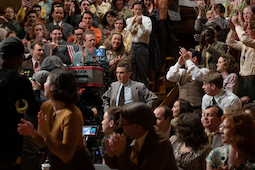
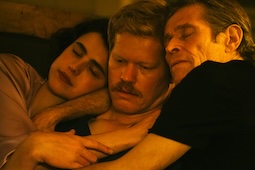
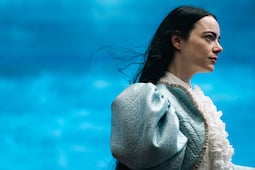
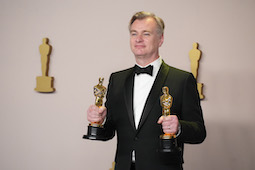
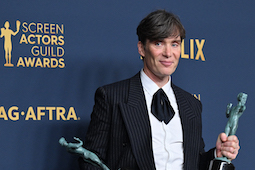

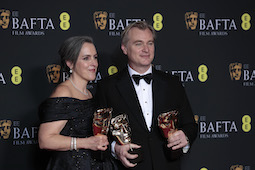
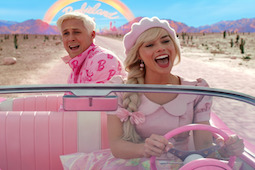
.jpg)
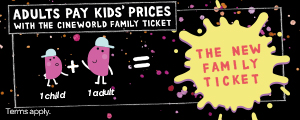

.jpg)
.png)






